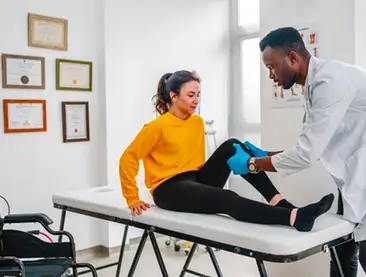Testosterone Replacement Therapy (TRT) has become a popular and effective treatment for a variety of conditions related to low testosterone levels. As a medical expert specializing in TRT, I have seen firsthand the positive impact this therapy can have on patients’ lives. In this article, we will explore the various conditions that TRT can be used to treat, and how it can help improve overall health and well-being.
What is Testosterone Replacement Therapy (TRT)?
TRT is a medical treatment designed to restore testosterone levels in individuals who have been diagnosed with low testosterone, also known as hypogonadism. Testosterone is a hormone that plays a crucial role in many bodily functions, including muscle growth, bone density, libido, and overall energy levels. When testosterone levels are low, it can lead to a range of symptoms and health issues.
Conditions Treated with TRT
1. Low Libido
One of the most common reasons individuals seek TRT is to address low libido or sexual dysfunction. Testosterone is a key hormone in regulating sexual desire and function, so when levels are low, it can lead to a decrease in libido and other sexual problems. TRT can help boost testosterone levels and improve sexual performance and satisfaction.
2. Fatigue and Low Energy
Low testosterone levels can also contribute to feelings of fatigue, low energy, and overall lack of motivation. By undergoing TRT, individuals can experience an increase in energy levels, improved mood, and a greater sense of vitality and well-being.
3. Muscle Loss and Weakness
Testosterone plays a crucial role in building and maintaining muscle mass and strength. Individuals with low testosterone levels may experience muscle loss, weakness, and difficulty building muscle. TRT can help improve muscle tone, increase muscle mass, and enhance overall physical performance.
4. Bone Density
Testosterone is important for maintaining healthy bone density and preventing conditions such as osteoporosis. Low testosterone levels can lead to decreased bone density and an increased risk of fractures. TRT can help improve bone health and reduce the risk of osteoporosis in individuals with low testosterone.
5. Depression and Mood Disorders
Low testosterone levels have been linked to an increased risk of depression, anxiety, and other mood disorders. By undergoing TRT, individuals may experience an improvement in mood, reduced feelings of depression, and an overall better outlook on life.
Is TRT Right for You?
If you are experiencing any of the symptoms mentioned above, it may be worth considering TRT as a treatment option. However, it is important to consult with a qualified healthcare provider who specializes in TRT to determine if this therapy is right for you. TRT is not suitable for everyone, and it is essential to undergo a thorough evaluation and testing before starting treatment.
At our medical practice specializing in TRT, we offer personalized treatment plans tailored to each individual’s unique needs and goals. Our team of experts is here to guide you through the process and help you achieve optimal results. If you are interested in learning more about TRT and how it can benefit you, please contact us to schedule a consultation.
Remember, prioritizing your health and well-being is essential, and TRT may be the solution you have been looking for to improve your quality of life. Don’t wait any longer – take the first step towards a healthier, happier you with Testosterone Replacement Therapy.


